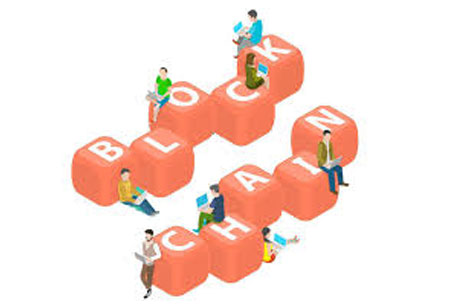THANK YOU FOR SUBSCRIBING
Global Logistics Industry Growth with Blockchain
While blockchain can deliver significant savings in order to improve operating efficiency and reduce transaction costs significantly, serious challenges have to be addressed in order to achieve mainstream adoption in the logistics industry.

By
Apac CIOOutlook | Friday, January 18, 2019
Stay ahead of the industry with exclusive feature stories on the top companies, expert insights and the latest news delivered straight to your inbox. Subscribe today.
Although blockchain is claimed to revolutionize businesses and to redefine logistics, current research on the frameworks categorizing blockchain application potential and their implications are still limited. Academic literature in transport and logistics, in particular, did not sufficiently distinguish between ‘when to adopt' blockchain and ‘where to start’ identification of the right business opportunity.
It is anticipated that blockchain technology will have far‐reaching implications for the transport and logistics industry, as some logistics experts consider blockchain to provide enormous benefits, transform the supply chain, and disrupt the way they produce, market, buy, and consumer goods and to be the much needed economic renovation platform.
Check out: Top Logistics Tech Companies in APAC
It is projected to double the value of the logistics industry by 2023 at $8.1 trillion. Although these payments can be lucrative, shipping companies and retailers lose a significant proportion of their possible profits because of ineffective practices, unnecessary intermediary costs, robberies, and cyber-attacks. Cargo theft is currently a major concern to the logistics industry, with the sector losing more than $39 million in 2017 alone due to cargo theft.
Due to the potential for the sharing of this technology, a number of supply chain utilization cases are available. Taking into account the movement from source to warehouse or warehouse of food materials to the customer, food materials should be constantly kept for freshness within a certain environment. The supplier could store it in a traditional situation in a place that is continuously monitored. How do all stakeholders interested in the storage and transportation process or monitor compliance? Blockchain comes into the equation and offers a way to solve it.
The stakeholders form a part of the same network with blockchain. Through the combination of IoT, the data is continuously written into blocks that are added to the blockchain network using sensors for temperature monitoring and other parameters. Stakeholders have instant access to these data with the help of native software. Data availability speeds up the data analysis process instantly and any measures necessary for it. For the logistics and supply chain, the ideal option would be Hyperledger—a blockchain framework—if the aim is not to track financial transactions. Hyperledger is a collaborative open source effort to advance blockchain technologies from across industries. The Linux Foundation hosts Hyperledger's global partnership, including finance, IoT, supply chain, and technology leaders.
While blockchain can deliver significant savings in order to improve operating efficiency and reduce transaction costs significantly, serious challenges have to be addressed in order to achieve mainstream adoption in the logistics industry. The adoption of the industry is essential, and the success of the blockchain technology in the field will be determined on this basis. In particular, it is a major advantage to be able to exchange information accurately and safely in the logistics sector, which is characterized by a supply chain environment with many stakeholders.
See Also: Logistics and Transportation Review





